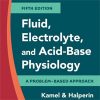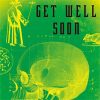Clinical Experience of Whole-body CT as the Initial Evaluation Tool After ECPR in OHCA Patients
link.springer.comRoutine whole-body computed tomography (CT) after extracorporeal cardiopulmonary resuscitation (ECPR) in out-of-hospital cardiac arrest (OHCA) patients appears to have a limited role, as the majority is caused by ACS. However, it may be a useful tool when CPR-related injury or non-ACS causes of OHCA are suspected, as well as in cases where the cause of OHCA is unknown.
On the contrary, routine brain CT may be a valuable tool in guiding anticoagulant therapy during ECMO and in aiding outcome prediction.
From January 2006 to May 2019, 700 patients had received ECPR in our institution. We identified 93 OHCA patients who received whole-body CT as the first clinical evaluation after ECPR. 22.6% of those had no acute findings detected on CT requiring immediate treatment.
In the remaining 77.4%, CT had findings that might lead to alterations in clinical course.
Most important findings were myocardial infarction (57.0%), hypoxic brain injury (29.0%), sternal/rib fractures (16.1%), aortic dissection (7.5%), pulmonary embolism (5.4%), and cardiac tamponade (5.4%).
There were no significant differences in ICU/hospitalization days, time on ECMO support, survival and neurological outcomes between those with and without immediate CT.

















